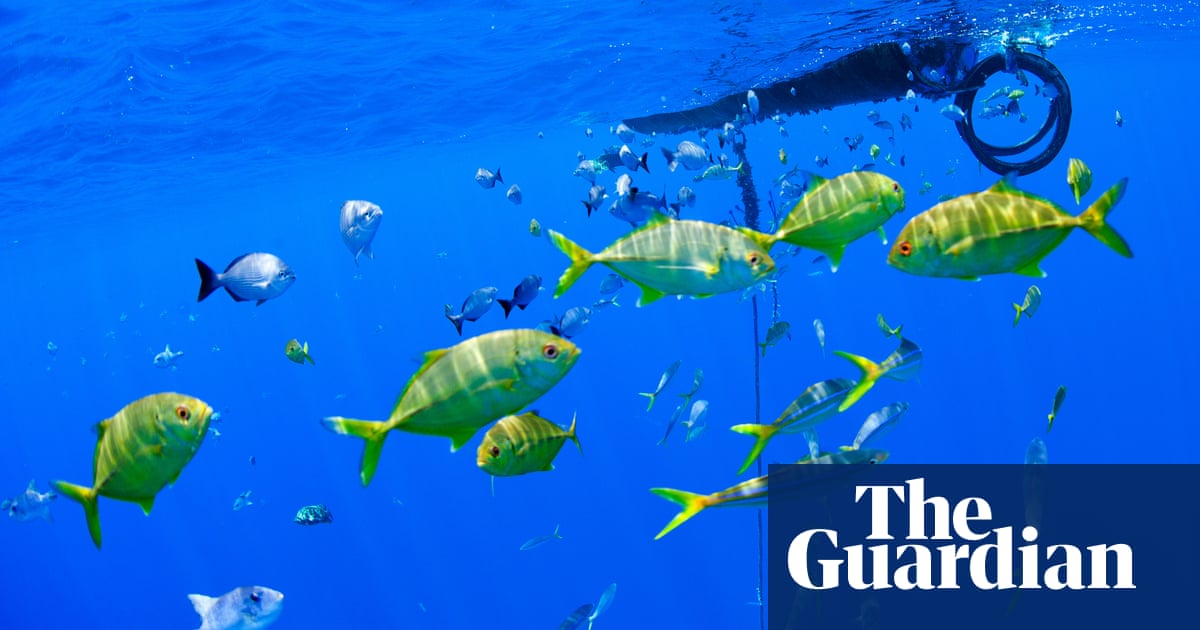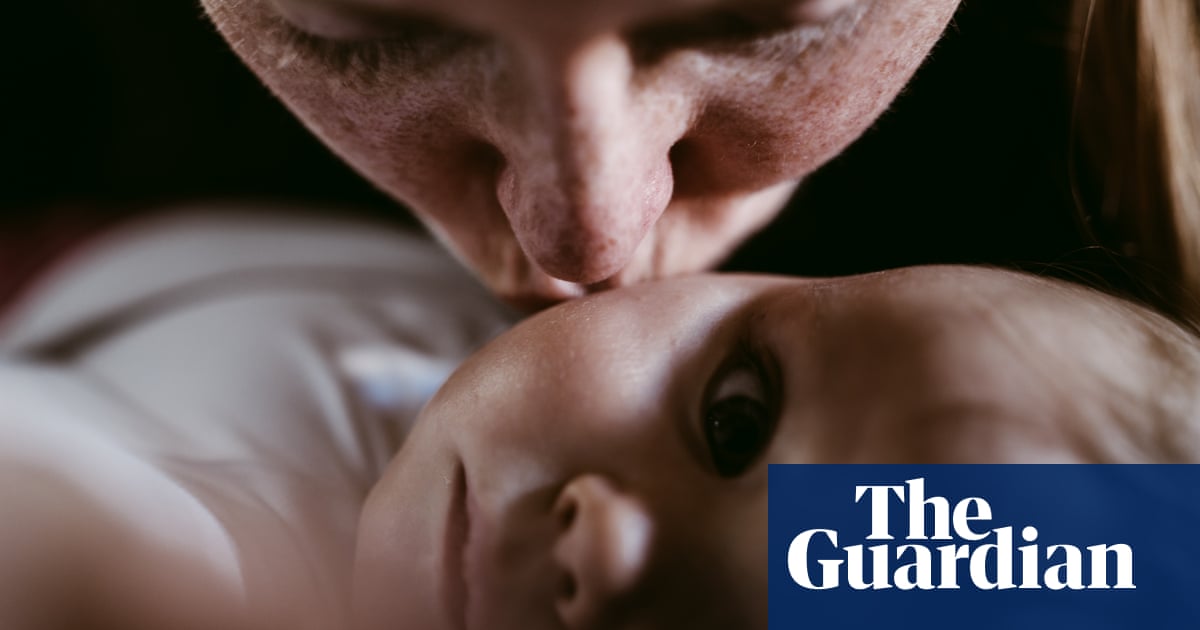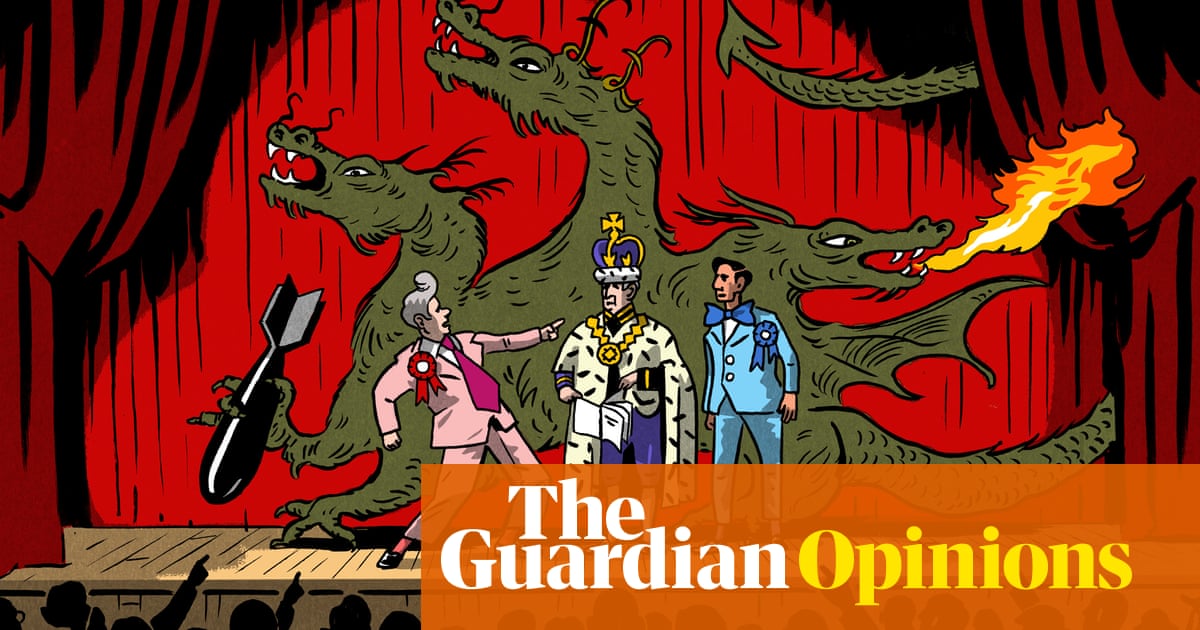
ext month, I will have been at the Guardian for a midlife crisis-inducing 20 years. No party, for obvious reasons, but I will mark the occasion by sitting alone in a dark room and watching the grains of sand slip ever faster through the hourglass of my life. Rock on!
I recently looked back on what no one refers to as my juvenilia, and the first article I ever got into the paper was about my early teenage years when I had anorexia nervosa. Now, with my platinum anniversary coming up, I shall bring you the sequel, about what happened in my late teenage years, because I seem to be reliving them, and so, as I shall shortly explain, are all of you.
When I was 17, and about to leave hospital for the seventh time in four years, my doctor told me it was time to stop – and this is the technical term – dicking around. If I lost weight again, she said, she wouldn’t allow me to accept my place at university the following autumn, which I’d somehow got, despite having hardly any GCSEs and precious little guarantee of A-levels. (To this day, I’m 100% certain that offer was a pity offer, and my university ended up having to put up with me for three years because their casual bet went very wrong. Well, who among us hasn’t ended up in a relationship or two that way?) So, I stopped dicking around. But all the anxiety that I once channelled into not eating – where could it go now? Enter, stage right, my next dance partner: Mr Obsessive Compulsive Disorder.
There was handwashing, of course. I washed my hands so much, my knuckles bled for years and are still, over two decades later, ridged with scars. I feared other people hugely, as Lord only knows what they were contaminated with, and maintained a strict distance from them, inwardly raging at anyone who breached it, crossing the road to avoid big groups. Mainly, though, I stayed home, as the outside world was too full of perils. But even home wasn’t entirely safe: I anxiously watched which surfaces – counter tops, doorknobs – family members touched and would then frantically wipe them down, like a grande dame, pointedly tidying up after my scruffy guests. Coats and shoes were a nightmare, food packaging even worse. And, obviously, no one could ever touch me. Any of this now sounding weirdly familiar, Britain?
A psychologist later suggested that my anorexia had been another form of OCD, and maybe that’s true. But what all of it – the not eating, the cleaning – felt like to me was a means of taking the fun out of life, which I succeeded at spectacularly. So, as I look around today’s fun-free, anxious world, I increasingly wonder if I’m Biff Tannen from Back To The Future 2, the tyrant who commandeers the time travelling car and turns the future into a mirror image of his own twisted psyche. Now that everyone is physical distancing and in self-isolation, I assume that at some point, in 1996, I accidentally got into a DeLorean and rendered 2020 in the image of my teenage self. And for that, I am enormously sorry.
But this also means I can tell you what will happen afterwards, because I have lived it. My imprisonment was self-imposed as I fought an imaginary enemy. Today’s stakes are obviously higher, the rippling aftereffects a little more global than me no longer moving seats in the cinema because someone sat too close. (Only three seats away! How dare they?) But I can tell you how it feels when you no longer need to keep the world at a fearful arm’s length: it feels amazing.
It has been almost 15 years since I last insisted on bringing my own utensils to restaurants, and still I thrill at the freedoms of normal life: spontaneously leaving my home without spending 20 minutes beforehand covering my hands and face like a serial killer; letting myself be hugged and hugging back. A few summers ago, I met some friends for a picnic in the park. We stayed there all day, sharing food, lying in the grass. As the day slipped into evening, someone suggested going to the pub, and off we went. To everyone else, this was just a normal summer’s day, but it made me almost cry with happiness. When you have been through self-isolation, there will always be a part of you afterwards that stands to the side of yourself, marvelling at the life you can now lead.
At the worst point of my OCD, doctors told me I was being self-destructive. Now, in a deliciously ironic twist maybe only I can enjoy, they are recommending those same quirks as lifesaving essentials. Validation has never been so unexpected. But none of this has triggered a relapse in me, because there’s some hard core inside of me that is so happy to be free of the self-imposed imprisonment that not even an externally imposed one can respark it. I acknowledge the real risks around us, now, but I shut my ears when my mind starts to whisper about the false ones. Because I know how good it feels to be free. One day, all of us will feel that freedom once more, and you will never take it for granted again.












